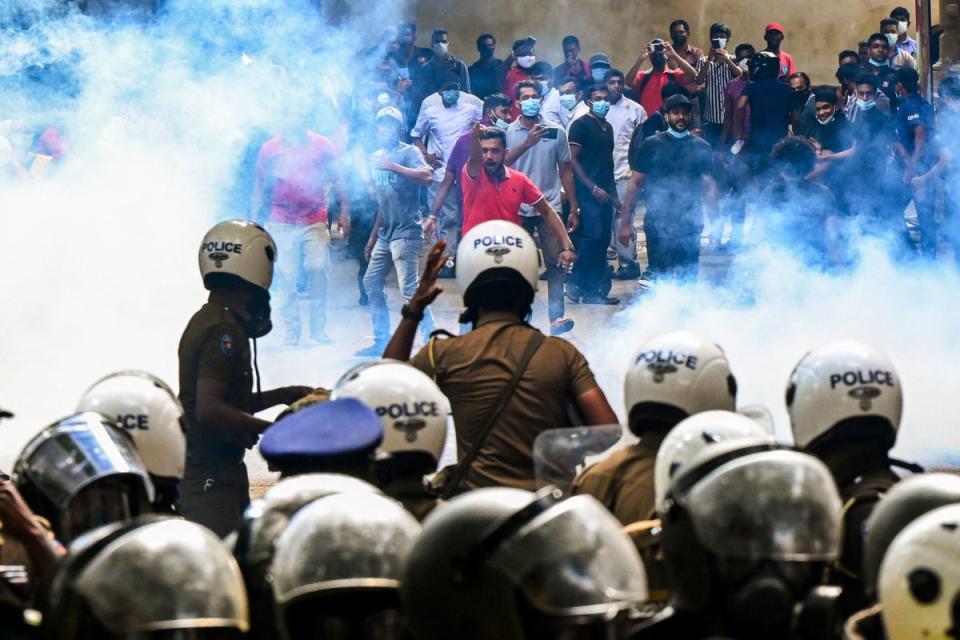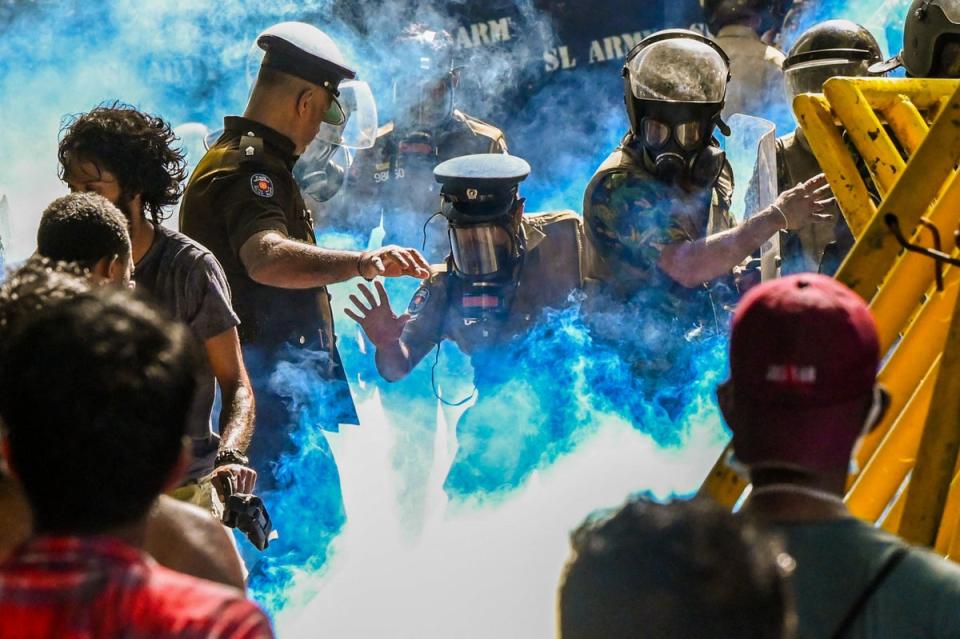Sri Lanka inflation could rise to 40%, PM warns crisis-ridden country
Inflation could rise to a staggering 40 per cent, Sri Lanka’s prime minister Ranil Wickremesinghe warned on Wednesday as he took additional responsibility of running the country’s finance ministry.
The 73-year-old took charge of the crucial government department after two weeks of dialogue among coalition partners ahead of bailout talks with the International Monetary Fund.
The prime minister is expected to unveil immediate plans for the economy, including presenting an interim budget, within the next few weeks.
However, Mr Wickremesinghe had few soothing words to offer as the island nation continues to grapple with a grave economic crisis.
“We have no rupee revenue, and now we have to print another [one] trillion rupees (£2.2bn),” he said. “Looking at the hard days ahead, there has to be protest. It’s natural when people suffer, they must protest.”
“But we want to ensure that it does not destabilise the political system,” he added.
“With the interim budget, it is just about cutting down expenditure, cutting to the bone where possible and transferring it to welfare.”

The island nation of 22 million, located off India’s southern tip, is reeling from its worst economic crisis since its independence in 1948 and lacks the money to buy imported necessities, including fuels and medicines.
The turmoil has come after the Covid-19 pandemic ravaged the country’s lucrative tourism industry and foreign workers’ remittances, as well as ill-timed tax cuts by the Rajapaksa government draining coffers and rising oil prices.
The country announced the hiring of two international firms to restructure its $51bn external debt as the World Bank on Tuesday said it was not planning to provide any new financing to Sri Lanka until an adequate economic policy framework has been put in place.
Lazard of France will provide financial advice and Clifford Chance LLP will assist with legal help to restructure Sri Lanka’s debts to international creditors.

On Tuesday, the government announced long-flagged increases in petrol and diesel prices to help repair public finances.
Economists believe price hikes are necessary, though it will exacerbate inflation, which rose to a record 33.8 per cent year-on-year in April, compared to 21.5 per cent in March.
The prime minister added that the administration was undertaking a review of possible expenditure cuts across the government sector. “For instance, ministry of health, we just can’t cut down its expenditure. Ministry of education, it’s a limited cut down, but there are many other ministries where we can cut,” he said.
Mr Wickremesinghe also said he hoped for a “sustainable loan package” from the IMF as the initial discussion with the international body ended on Tuesday.
Earlier this week, IMF managing director Kristalina Georgieva said the lender was “working relentlessly” at a technical level on Sri Lanka.
Additional reporting by agencies


